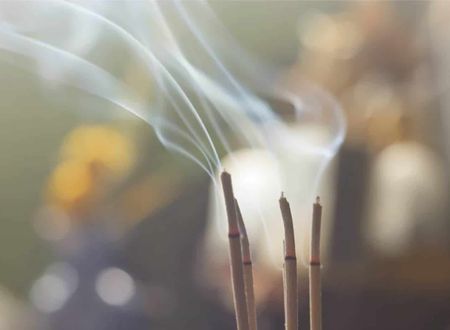Whatever makes you weak—physically, mentally and spiritually—is paap; and (conversely) whatever makes you strong—is punya.
Often we are faced with such questions: is there God, is there heaven and hell, do paap and punya really exist, etc. These are uniquely human questions and although they are not ‘objective’ in the scientific sense, they are completely legitimate questions. I’ll tell you why.
Because they are intimately connected with our life—the way we see ourselves in this unfathomable universe and the way we live. These questions force us to think in new ways and to probe the truth about our very existence. So, in essence, they serve the same purpose as the Sciences—they explore the truths about this universe and human life.
Now, think about this question: what is paap and punya? It’s a philosophical question. You can’t answer it from any book, because there is no ‘information’ about it, scientifically speaking. So, how will you answer this? Questions like these are not made for answers, but for understanding—let’s first understand that. Any word—if there is a word for something—either refers to an idea, an experience, a thing or an event. Now, what do paap and punya refer to? They are ideas related to actions (karma), aren’t they? It is in the context of actions that we think of these two words.
According to traditional understanding, paap and punya are ‘demerits’ and ‘merits’ earned through bad and good karma respectively. Whenever we engage in actions that are wrong for some reason, we acquire demerit (paap), and that leads us to negative consequences—pain and suffering; and when we do good deeds, we earn merits (punya), which in turn leads us to favourable consequences—happiness and satisfaction. This is the entire karmik philosophy in a nutshell.
So, paap and punya actually refer to the karmic mechanism—how it functions. Now comes the hard question: am I going to believe in this?
My suggestion is—don’t believe or disbelieve. If this is not the way the karmik wheel spins, then what’s the actual mechanism? Have you ever gone into this? Have you ever tried to figure out how karma functions? Go into this; try to see for yourself. You don’t have to take anybody’s words; in fact, that’s what I meant when I said these questions are not made for answers, but for deeper understanding of the processes of life. Illumined saints and sages and our scriptures have given us these insights into the workings of life. We just have to recognize the truth.
And not just the Hindu scriptures, Buddhist doctrine also gives us the same understanding. For example, the opening lines of the famous Twin Verses from The Dhammapada tell us:
“Our life is shaped by our mind. We become what we think. Suffering follows an evil thought as the wheels of a cart follow the oxen that draw it.
Our life is shaped by our mind. We become what we think. Joy follows a pure thought like a shadow that never leaves.”*
We see the same mechanism is described by Buddha. And also in our everyday life, isn’t this the way things follow? Of course there are hundreds of factors that influence our actions, but whenever we do something good, doesn’t that bring us instant happiness? And when, either intentionally or unintentionally, we do something that is not good, don’t we face difficulties and unhappiness? And tell me, what type of actions create conflicts—good or bad actions? It’s the latter that creates all the restlessness and conflicts within our hearts. Good actions done with good intentions never create conflicts—that’s the secret of actions.
So, paap is an unwholesome act, whereas punya is the opposite of it—an act which is wholesome.
—
Thank You.









Comments & Discussion
4 COMMENTS
Please login to read members' comments and participate in the discussion.